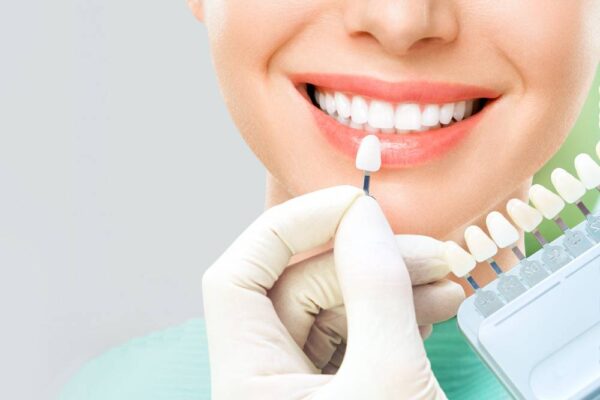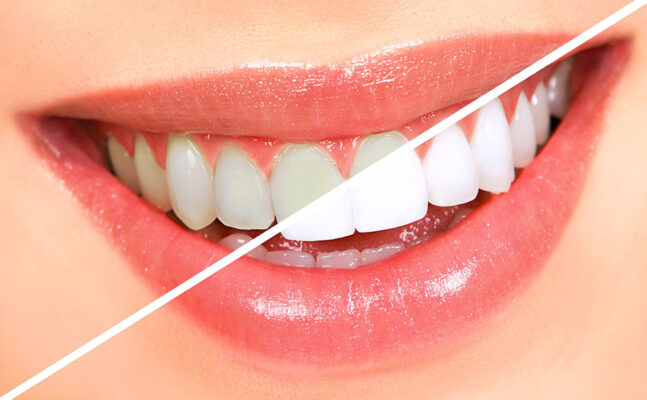Geriatric Dentistry
Teeth whitening is a cosmetic dental procedure aimed at lightening the color of the teeth and removing stains or discoloration. It is a popular treatment to improve the appearance of one’s smile and enhance self-confidence.
There are various methods available for teeth whitening, ranging from professional treatments performed by dentists to over-the-counter options for home use. Here are some commonly used methods:
- In-office professional whitening: Dentists use stronger bleaching agents and specialized techniques to achieve significant whitening results in a short period. This method often involves the application of a hydrogen peroxide or carbamide peroxide gel on the teeth, which is activated with a special light or laser.
- At-home whitening kits: Dentists may provide customized whitening trays that fit your teeth. These trays are filled with a bleaching gel and worn for a specified period, usually a few hours each day or overnight. Over-the-counter whitening kits are also available, but they may have lower concentrations of bleaching agents and provide less noticeable results.
- Whitening toothpaste: These toothpaste products contain mild abrasives or chemicals that help remove surface stains from the teeth. While they can help maintain the whiteness of teeth, they may not be as effective in treating deep stains or providing significant whitening.
- Whitening strips: These are thin, flexible strips coated with a whitening gel that you apply directly to the teeth. The strips are usually worn for a specified time each day over a period of one to two weeks. They can be purchased over-the-counter and may provide noticeable results, although they are generally not as effective as professional treatments.
It’s important to note that teeth whitening treatments may not be suitable for everyone. If you have dental restorations like crowns, veneers, or fillings, these treatments may not work on them, leading to uneven coloration. It’s recommended to consult with a dentist to determine the most suitable whitening option for your specific needs and to ensure the procedure is safe for you.
Additionally, it’s worth mentioning that teeth whitening is not a permanent solution. The results typically last for a certain period and can vary depending on factors such as oral hygiene habits, diet, and lifestyle choices (like smoking or consuming staining substances). Regular touch-ups or maintenance treatments may be necessary to keep your teeth looking their best.





